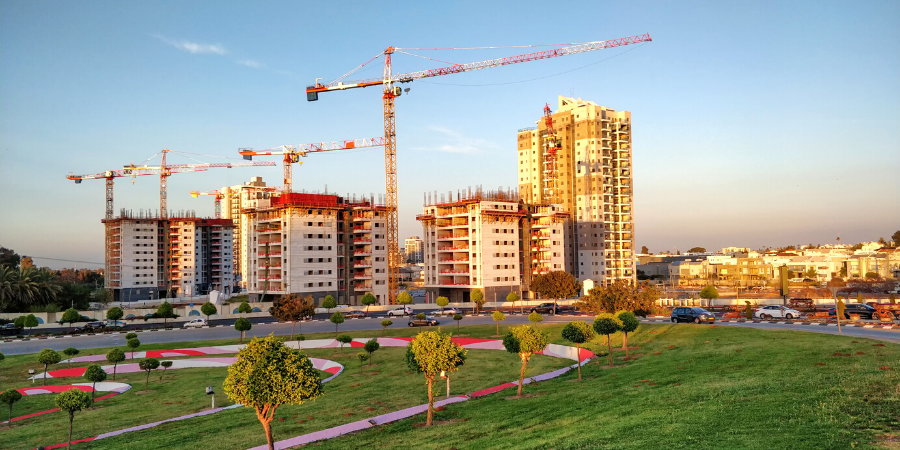In the lucrative Australian property market, a property development business plan is critical to accessing the funding you need to get your project off the ground. The significance and recent growth of the commercial real estate industry in Australia highlight its profit potential and tax benefits. Whether you’re an experienced investor looking to add to your portfolio or a new entrant to the property development industry, having a clear, professional plan is crucial to navigate the complexities of this competitive space.
This guide will take you through the key components of a property development business plan and provide you with the information you need to turn your property development dreams into a business.
Key takeaways:
-
Market Intelligence: In-depth analysis of the Australian property market is crucial. Use current data from reliable sources to inform your strategy and identify opportunities.
-
Financial Foundations: Develop comprehensive financial projections and a diverse funding strategy to demonstrate viability and attract investors.
-
Sustainability and Flexibility: Embrace green building practices and remain adaptable to market changes to differentiate your business in a competitive landscape.
The Australian Property Development Landscape
Before we get into the nitty gritty of your property development business plan it’s important to understand the current state of the Australian real estate development industry.
The Australian property market has been remarkable in its resilience and growth over the years with the occasional dip. Cities like Sydney, Melbourne and Brisbane and a growing number of regional areas are the hotspots for commercial property development driven by population growth, urbanisation and a strong economy.

Recent market trends show a growing demand for sustainable and mixed use developments particularly in urban areas. As environmentally conscious buyers become more mainstream green building is no longer a niche but a must have for property development companies. With the rise of remote work properties with flexible living spaces and home office capabilities are now top of the list.
To stay ahead of the curve research is key. This research should include demographic data, economic indicators and emerging trends that will impact your property development projects. By understanding these factors you can position your business to take advantage of opportunities and mitigate risk.
Components of a Property Development Business Plan
A property development business plan should cover several key areas, here they are:
Executive Summary
This section is at the front of your business plan but is best written last. The executive summary is a summary of your property development business, your vision, mission and key objectives. It should capture the essence of your business model and entice readers whether they’re potential investors, partners or lenders to read more into your plan.
Company Description and Structure
Describe your company’s legal structure, is it a sole trader, partnership or company. Explain why you chose this structure and how it benefits your property development business. Include information about your management team, their experience and how their skills work together to drive the business forward.
Market Analysis
The market analysis is the heart of your property development business plan. This section should show your knowledge of the real estate industry, your target market and your competition.
Include:
| Data Point | Value | Source | Relevance to Property Development |
|---|---|---|---|
| Median House Price (Sydney) | $1,205,618 (as of Q2 2023) | CoreLogic | Indicates market value and potential selling prices for new developments |
| Residential Building Approvals | 14,787 (July 2023) | Australian Bureau of Statistics | Reflects current development activity and potential market saturation |
| Population Growth Rate | 1.1% (year ending 31 March 2023) | Australian Bureau of Statistics | Indicates potential demand for new housing and development opportunities |
| Green Star Certified Projects | 3,000+ (as of 2023) | Green Building Council of Australia | Shows trend towards sustainable development and potential market differentiation |
| Cash Rate | 4.35% (as of November 2023) | Reserve Bank of Australia | Impacts borrowing costs and feasibility of property development projects |
| Rental Vacancy Rate (National) | 1.0% (October 2023) | SQM Research | Indicates potential demand for rental properties and investment opportunities |
| Construction Costs (Sydney, Medium-rise Apartments) | $2,745 - $3,630 per sqm (2023) | Rider Levett Bucknall | Crucial for budgeting and financial projections in property development |
This will not only inform your business decisions but also show potential stakeholders you know the property development industry and are ready to go.
Property Development Strategy
Describe your property development approach including the types of projects you will undertake (residential, commercial, mixed use developments) and your focus area. Discuss your land acquisition, project management and construction management strategies. Consider:
-
Site selection criteria and process
-
Development process from concept to completion
-
Partnerships with architects, contractors and other professionals
-
Getting planning permission and navigating local government
-
Green building and sustainable design
-
Risk management at each stage of development
Marketing & Sales
A good marketing strategy is key to attracting buyers or tenants to your developments. Your marketing plan should outline how you will position your properties in the market and reach your target audience. Include:
-
Branding for your property development company
-
Digital marketing, website and social media
-
Content marketing to establish thought leadership
-
Networking and relationship building with real estate agents and industry professionals
-
Targeted advertising for specific developments
-
Sales process and customer relationship management
Financial Projections and Funding
This section is where you demonstrate the financial viability of project as part of your commercial property development loan application, or private investment process:
Financial Projections:
| Financial Component | Description for Property Development Projects |
|---|---|
| Income Statement | Projected revenues, expenses, and profits for property developments over 3-5 years |
| Cash Flow Statement | Projected cash inflows and outflows, demonstrating liquidity management for property projects |
| Balance Sheet | Projected assets, liabilities, and equity over time for the property development business |
| Break-even Analysis | Point at which your property development business becomes profitable |
| Return on Investment (ROI) | Projected returns for various Australian property development projects |
And outline your funding strategy which may include:
-
Personal investment
-
Bank loans
-
Private investors or real estate investors
-
Joint ventures or partnerships
-
Government grants for sustainable developments
Make sure you explain how you will fund and manage cash flow through the development process.
Operational Plan
Describe the day to day operations of your property development business. Include:
-
Organisation and key roles within the company
-
Systems and processes for project management and quality control
-
Technology and software used for business operations and project tracking
-
Outsourcing for specialist services (e.g. legal, accounting)
-
Compliance with industry regulations
Risk and Contingency
Property development is risky. Show you are aware of the potential risks and how you will mitigate them. Include:
-
Market downturns and economic changes
-
Construction delays and cost blowouts
-
Changes in zoning or building codes
-
Environmental issues or contamination
-
Financing risks and interest rate changes
Your Exit Strategy
It may seem premature but including an exit strategy in your business plan shows you are thinking long term. Consider:
-
Selling to a larger property development company
-
Passing on to family or key staff
-
Going public with an IPO
-
Liquidating and closing the business

Writing Your Property Development Business Plan
Now that we have outlined the components, let’s talk about how to write your property development business plan:
-
Research First: Before you put pen to paper (or fingers to keyboard) do your research on the Australian property market, your target areas and competitors. This will inform everything else.
-
Be Realistic: While optimism is important, your financials and growth strategy should be based on reality. Use conservative numbers and be prepared to justify them.
-
Focus on Your USP: What sets your property development business apart from others? Whether it’s sustainable design, innovative finance or a niche market segment make sure your USP shines through in your plan.
-
Keep it Professional: Your business plan is often the first impression potential investors or partners will have of your company. Make sure it’s well written, professionally formatted and error free.
-
Use Visual Aids: Use charts, graphs and tables to present complex information in a easy to read format. This is particularly useful for financials and market analysis data.
-
Get Expert Input: Consider having your plan reviewed by industry professionals, real estate consultants, financial advisors or experienced property developers. Their input will be invaluable in refining your strategy.
-
Review and Update: Your property development business plan should be a living document. Review and update it regularly to reflect changes in the market, your business or your goals.
Executing Your Property Development Business Plan
Now that you have your business plan, it’s time to put it into action. Here are some key steps to consider as you launch or grow your property development business:
-
Build Your Network: Success in property development is all about relationships. Industry events and professional associations can be a good way to connect with real estate agents, architects or other professionals who can support your projects.
-
Get Funding: Use your business plan to approach potential investors or lenders. Be prepared to pitch your vision and demonstrate the viability of your projects.
-
Assemble Your Team: Recruit experienced professionals who share your vision and can contribute to the success of your developments. This may include project managers, construction managers and marketing specialists.
-
Develop Your Brand: Create a strong brand for your property development company. This includes designing a professional website, developing marketing materials and establishing a presence on relevant social media.
-
Start Small: If you’re new to property development start with smaller projects to build your experience and track record before tackling larger developments.
-
Stay Informed: Stay up to date with market trends, changes in regulations and emerging technologies that impact your business. Continuous learning is key in the ever changing property development world.
-
Focus on Quality: Build a reputation for delivering quality developments that meet or exceed buyer expectations. This will be critical for long term success and repeat business.
-
Embrace Sustainability: As demand for green buildings grows incorporate green building practices into your developments. This will be a key differentiator in the market.

Getting started
A property development business plan is more than a document – it’s a roadmap to success in one of Australia’s most exciting and rewarding industries. By covering all the points we’ve discussed you’ll have a solid plan that guides your business decisions and gives confidence to potential investors, partners and stakeholders.
Remember, property development is about vision, planning and flexibility. Your business plan should reflect that, showing your understanding of the market, your innovative approach to development and your ability to navigate the industry.
Now go out there and use your business plan as a guide but keep your mind open to new opportunities and ideas. The Australian property market is full of opportunities for those who are ready, willing and able. With a plan and a commitment to excellence you’ll build not just properties but a legacy in the property development world.

